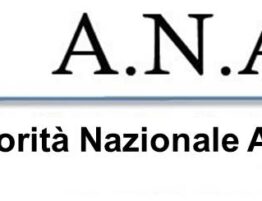
How often have you been forced to abandon the recovery of a debt or the enforcement of a judgment against a debtor residing abroad? Court fees, extended time frames, legal counsel in your Country, legal counsel abroad and no certainty of achieving a result.
From now on this should be only a bad memory. Europe in fact continues its run towards an even higher level of cooperation between Member States in the field of civil justice, pursuing the principle of equivalence of the European justice through the simplification of procedures and the elimination of state bureaucracy that only serve to slow down the exercise of rights and to increase the costs of legal actions.
The long-awaited goal has been reached thanks to the recent entry into force of Regulation no. 1215/2012 on jurisdiction, recognition and enforcement of judgments in civil and commercial matters, which replaces the previous Regulation No. 44/2001. Compared to the previous regulation, the novelty lies in the immediate enforcement in all Member States of the judgments which are enforceable in the legal system of origin, without the need for the plaintiff to activate any specific procedure to obtain a declaration of enforceability in the State of enforcement (Art. 39), where the Judge will essentially only have to carry out a formal control of the judgement issued by his European colleague.
Therefore, the enforcement proceedings abroad finally seem to become unstoppable (or almost unstoppable). The enforcement procedure starts with the declaration of the authenticity of the judgement to the competent authority of the Member State addressed. Said declaration is submitted together with a standard form issued by the court of the state of origin. The procedure then continues with the service of the measure on the party against whom the enforcement is sought, and will take the form outlined by the local civil procedure.
Thus, this is the final farewell to enforcement orders or to intermediate procedures to declare the enforceability of the judgment which may block the smoothness of the procedure initiated by the plaintiff. Europe has transferred the burden of taking action in order to obtain the refusal of recognition and / or of enforcement of the judgement to the opposite party (arts. 45 and 46). However, the initiation of such procedure does not interrupt the enforcement in progress and, consequently, it cannot be used for delaying purposes.
Furthermore, according to the Regulation, the enforceable decision implies the authorization to proceed with the preventive and precautionary measures under the law of the State addressed (Art. 43), so that plaintiffs will be able to obtain said protection of their right in a virtually automatic manner and even before the debtor is informed about the beginning of the enforcement through the service of the judgement.
Starting from 10 January 2015, date of entry into force of the Regulation, life will become difficult for the defaulting party who will be chased across Europe without no longer being able to take advantage of his creditor’s discouragement caused by the unnecessary bureaucracy and by the lengthiness of Justice.
At this point, we will be waiting for the next effective and timely debt recovery tool that Europe will provide with the entry into force of Regulation no. 655/2014, scheduled for January 2017. In fact, this regulation which establishes a European account preservation order procedure of bank accounts for the cross-border debt recovery in civil and commercial matters, exploits the convenience of innovative procedural principles also for the Italian system.
(Bologna Office – Valentina Saviotti – 0039(0)512750020)
 Print This Post
Print This Post








